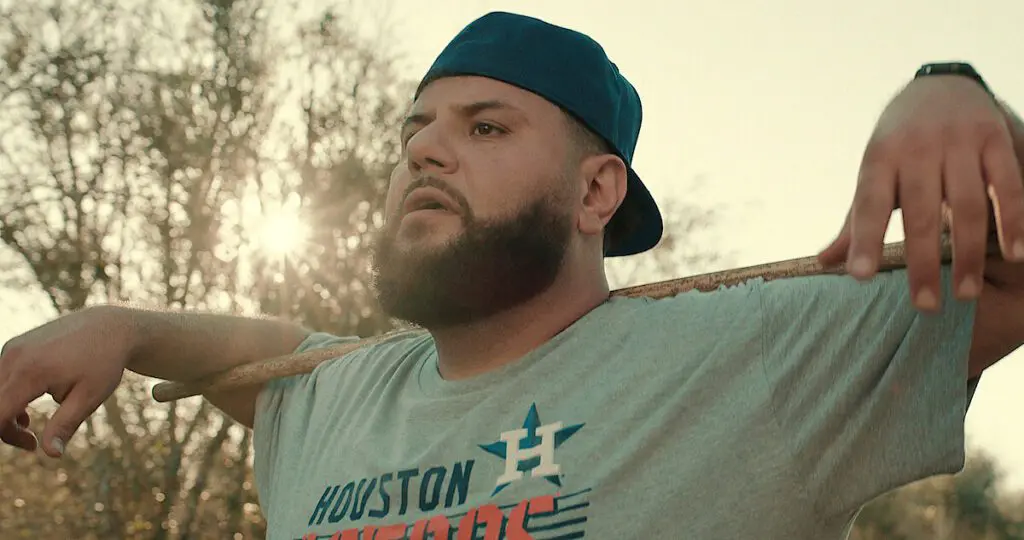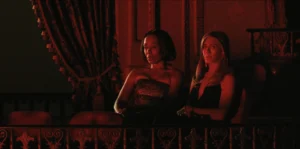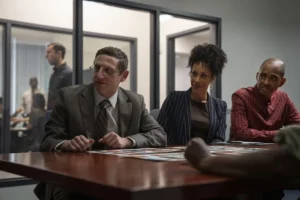Summary
Sharp, very funny, and well-observed, Mo is an exceptional and necessary comedy series about the immigrant experience.
What works about a show like Mo isn’t that it’s funny – that should come as standard. Instead, it’s how it uses its humor to address topics that are very much not funny; how it makes difficult subjects palatable. Most people don’t want their entertainment to remind them of extortionate healthcare costs, the constant dread of the immigrant experience, or the bureaucratic obstacle course that’s necessary for even a nominal version of so-called citizenship. But this Netflix series, co-created by Mo Amer and Ramy Youssef and based at least partially on the former’s life, can walk a fine line between relevant, vital social topics and the usual sitcom fare.
There’s a reason that line is so narrow and treacherous. Too much comedy and you’re making light of mass shootings and racial profiling and the systemic othering of “illegal immigrants”, many of whom were born in the country they now call home and have never set foot in the “homeland” they might at any moment be sent back to. But too much lecturing and you’re preaching, patronizing, and putting message-mongering ahead of entertainment. Neither is ideal.
It’s hard to explain how Mo manages to nail the balance, but most of it comes down to well-observed details that are very specific to either a particular culture or circumstance. Mo, the titular protagonist, has spent 22 years in Houston with his family – mother Yusra (Farah Bsieso) and brother Sameer (Omar Elba) – after fleeing first Palestine and then Kuwait. He’s trying to make ends meet by hustling fake designer goods and working dead-end jobs anywhere that’ll take the risk of employing someone who technically isn’t allowed to be employed.
Mo isn’t a salesman at heart; his ability to relate to people is just a skill he has nurtured over time, part of fitting into a culture that sometimes clashes with the one he’s used to at home, where loyalty to the useless family attorney has kept everyone in cultural limbo for two decades. Some of the funniest and most resonant moments in the show stem from the contradictions in Mo’s life; how he has drifted further and further away from his family’s staunch traditionalism. His girlfriend, Maria (Teresa Ruiz), is a Mexican Christian, and Mo has to placate Yusra by insisting she might one day convert to Islam. Mo has a tattoo in remembrance of his late father which Yusra only discovers when she tends to his wounds after he’s grazed in a supermarket shooting. (The on-scene EMTs debate whether the number of victims makes the shooting a “mass shooting” or not.)
Barely anybody realizes that Mo is Palestinian; they tend to assume he’s Latino, and whenever he explains it, they nod in understanding and say something like, “Oh, you’re Indian then.” Even when he clarifies he tends to get, “Ah, Israel,” which he often writes off as a “branding issue”. He doesn’t get bent out of shape about any of this – he’s used to it. But it makes a good point both about how most Westerners are culturally ignorant but also, on a lighter note, that ignorance is much more often the source of such comments than outright malice. Mo isn’t the kind of show to vilify everyone. But it is the kind of show to reiterate that there’s a big difference between “real” olive oil and hummus and the watered-down, westernized versions we’re used to. And if you think that just applies to foodstuffs, you’re massively missing the point.
In the same way Mo sneaks real observations into its humor it also sneaks real emotion into its drama. This isn’t a maudlin, self-pitying show, but it is one about the pain of loss, the dejection that stems from lack of acceptance, and the endless trauma of trying to prove oneself within the restrictive paradigms of tradition. Sometimes Mo falls down by relentlessly trying to support people who’re already supporting themselves; by trying to slip into shoes that he was never intended to fill in the first place. Part of its charm is allowing him to realize that without ever compromising who he is or where he comes from. And there are far too few mainstream television shows willing to do that.
Read More: Mo Season 1 Ending Explained




